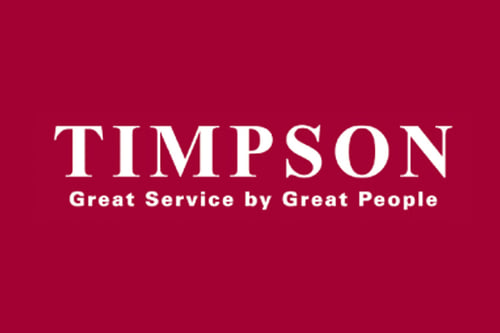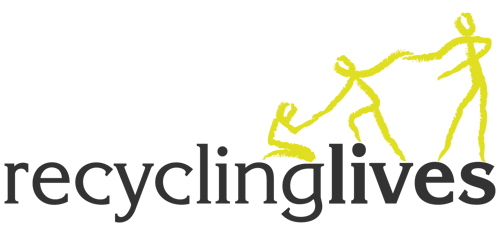Our recent Jobtrain webinars have all had a common theme – the challenge of finding and engaging talent.
With a Diversity and Inclusive hiring strategy, we think of looking at a wide pool of candidates, such as people of all ethnicities, from different countries or who are neurodiverse. But often we overlook an entire displaced workforce and that was the topic of our conversation with James Fellowes and Chance Bleu-Montgomery from Bridge of Hope.
- James and Chance – their stories
- The creation of Bridge of Hope and championing Inclusive Recruitment
- Coalition of Skills and Support Partners
- The transferable skills
- Ex-offenders’ reputation – Timpson’s
- Homeless – Recycling Lives
- Bridge of Hope a job board - how do they find talent?
- How can an employer connect with Bridge of Hope?
- How to promote inclusive recruitment internally
- “Stop recruiting and start changing lives”
- Contact Bridge of Hope
A thoroughly insightful webinar - watch it back in full above, or read a high level summary below.
Statistics from the ESCoE say up to 1.3 million people have left the UK as a result of the Covid pandemic and potentially because of Brexit too and that is causing huge challenges for many employers. Can you tap into entirely new talent pool?
The untapped workforce
Who are they? There’s a huge number of people who have been displaced from the workforce – for several reasons – people who are ex-armed forces personnel, people with specific mental health challenges, and ex-offenders - Timpsons is a great example of this.
James and Chance – their stories
James’ story
James had an exceptionally privileged upbringing and education (educated at Eton). He had a successful career in the drinks industry, working in America for the biggest drinks company in the world, Diageo, and was managing their biggest North American customers. His family family life was great, until his luck ran out.
He was made redundant 5 times over 5-6 years and after the property crash, his life began to unravel, ending with him having no money to look after his family. He was then sectioned, for the foreseeable future, in a psychiatric ward and in full denial there was anything wrong. James’ family intervened and took him back to the UK - he’d lost everything. He was then diagnosed Bipolar.
After this, for the first time, he started to experience barriers in getting a job, something unusual for him as a white, privileged male. He couldn’t work in an executive job, so applied for jobs in coffee shops or pubs and ended up as a janitor in a factory.
Eventually, he started to work again in the drinks industry but was made redundant again in 2018.
Chance’s story:
Chance’s story is very different to James’ and it's the reason he is so passionate about the Bridge of Hope. He experienced physical abuse growing up and felt very significant. He used to run away and only finally stayed after meeting friends that made him feel significant and loved. However, they were from the anti-social membership and getting into trouble was only a matter of time.
At 16 he was in in prison and by 18, Chance’s sister took him to a mental hospital because of depression – he went on to try and make some changes with little success. Chance’s sister then died and within a year, his life had unravelled and he was back in prison for the last time. This time he was determined to make a change.
He spent the next years in therapy and at the Open University to get an education that his childhood hadn’t afforded him – alongside swathes of personal development programs too. For the first time in his life, he felt freedom. He was filled with forgiveness and self-respect. His childhood experiences were no longer going to define his future; and he felt he was finally the person he was always meant to be.
He decided then that he wanted to support people with similar challenges and experiences to his own, who faced barriers or were having a tough time.
What lead to the creation of Bridge of Hope and championing Inclusive Recruitment?
After James’s final redundancy in 2018, he decided he wanted to give something back. It was always going to be about jobs and recruitment - he knew that when you had a job, life was great – but when you didn't, life was very tough. With his own experience of facing barriers to employment, he wanted to look at ways to help other people.
James spoke to charities about how employability fitted in with them. The charities helped rehabilitate people whether they had been in prison, were a veteran with trauma, neurodiverse - they had different approaches. Each said the end game was to get each person “job ready”. These people were ready to get back into society, supported by wonderful organisations - but there was no mechanism in helping them actually get a job.
Back in 2018, huge talent shortages were still a hot topic - and diversity and inclusion was being talked about more and more but with little understanding on finding diverse talent. This was Bridge of Hope’s moment.
Bridge of Hope started by connecting job ready talent with charities, social enterprises and then to inclusive employers.
How Bridge of Hope has developed
James mentored Chance when he was setting up a business – and it was then that Chance was invited to join him at Bridge of Hope.
Chance was already successfully supporting people who'd been in the criminal justice system, but the Bridge of Hope gave him the opportunity to help anyone who faced barriers. At the time, candidates could go across the bridge to inclusive employers – but Chance realised it could be even better.
Coalition of Skills and Support Partners
This Coalition of Skills and Support Partners was set up after the realisation that the candidate journey into employment is just as important as when they have the job. It gives candidates the opportunity to tap in their personality traits to return a list of industries that their personality and skills are transferable to, helping to open their mind to different options.
They partnered with City & Guilds too for candidates to access free qualifications, alongside other pathways into hospitality, trades, and their technology boot camp too.
Financial support, advice and mental health first-aid
For Bridge of Hope’s candidates, they can access their wage before payday. After a candidate has worked for two weeks, they can access those two weeks wages. They saw that for many candidates, they’re outside of their comfort zone. They might be experiencing social anxieties or have imposter syndrome, so add a utility bill on top whilst they’re working a month in hand, then that often raises anxiety levels and they can’t give the best version of themselves.
They also provide free financial advice and extend it to the candidate’s entire family. The first in the family to get a degree or have a good job, often feels the pressure from the family, so this support removes this burden and helps their family maintain independence.
By 2030, 50% of our workforce will have mental health issues, so Bridge of Hope are also launching a mental health first aid course for employers.
The transferable skills
Timpson’s is an organisation where many employees are ex-offenders – they’ve employed six or seven hundred people since 2014. There's evidence to demonstrate that ex-offenders work harder, they're loyal and so it's good for the employer’s reputation.
From the Timpson’s Academy (inside a prison) every one is highly professional and after they pass and complete the program, they’re often guaranteed a job when they’re released from prison.
Ex-offenders’ reputation – Timpson’s

With Timpson’s, on an individual's first day they're given the takings to take to the bank. it's often met with disbelief from the individual, but they've never had any issues with anything being taken. Ex-offenders are the one group that Timpson’s have never had problems with – they’re a cohort who have been given a second chance and they're not going to throw it away.
James Timpson wrote in the Sunday Times about dishonesty - it happens in every organisation, and you must work around it and have protocols.
Homeless – Recycling Lives

Recycling Lives recycle TVs and fridges in Preston and are a growing business that wanted to give something back, so they set up a foundation. Their primary objective was to help people in Preston who were down on their luck and offer them the chance to enrol on a program and give them a job.
The benefits were:
- They have never lost a pitch. When they’re pitching against others, they can say that they’ll put a homeless person into work if they get the business – a win-win for everyone.
- Retention is not a word they need to use. No person from the program has ever left and it's acted like a glue for their organisation. The company cares and they’re giving people another chance – and that's a phenomenal culture to work in.
- Activity has skyrocketed. Those that have been in the program worked harder, which naturally made everyone else want to work harder to keep up, so productivity raised significantly.
Inclusive recruitment is changing people's lives. It’s not charitable or altruistic – it’s good for business and the by-product is that you're changing lives and their families lives.
Bridge of Hope a job board - how do they find talent?
They work with over lots of different organisations, have digital boot camps and they’re across social media too. But they wanted to proactively source candidates so started to work with Adway, who specialise in sourcing passive candidates through social media.
Most of their candidates are passive. For example, for someone who is autistic, there’s a 15% chance of getting a job. Or if you’re an ex-offender, or you’ve been turned down for interviews countless times - it feels pointless to look at a job board. They find these people in online communities and help them using the Bridge of Hope platform – they now have 35 Blue Chip clients looking for talent like this.
Look for diamonds in the rough
Some candidates are not job ready, but we know they're resilient and that’s important – they’re rough diamonds. Angela Duckworth’s Ted Talk covered this – watch it here.
People who have constantly faced barriers will have grit and resilience. These are the types of people who will always stay in post even when things get difficult. By teaching someone with resilience how to do a job, they’ll do it at a high level, be determined and they’ll be loyal, so your retention improves.
If you start looking for candidates in a different way, you’ll find these diamonds in the rough. Chance believes that there isn’t a talent shortage - we're just looking in the wrong way and Bridge of Hope can be the conduit.
How can an employer connect with Bridge of Hope?
Bridge of Hope provides unlimited job postings, unlimited candidate sourcing and three Boosts of Hope. They’re mantra - the more candidates hired, the better.
Boost of Hope is in partnership with Adway - a tactical and targeted media burst on social media. Their first was with Royal Mail and they had around 5,500 applications in a week. One of the reasons it works so well is the amount of data points you can use to find passive, diverse candidates.
They also help with benchmarking on your inclusive recruitment pathway.
How to promote inclusive recruitment internally
Sometimes, it’s difficult to try and sell the idea of inclusive recruitment internally. Often people will get push back from senior executives who might be sceptical. That’s why Bridge of Hope can provide a free webinar for your management/exec team to help promote inclusive recruitment.
Their aim is to shift the needle on social mobility, and this can only happen in coalition with great organisations.
Can employers search for talent through Bridge of Hope’s platform?
Bridge of Hope is a sourcing system too, where candidates can be searched for in the database. It reduces the barriers those individuals were facing, and you can go and bring them over the barrier.
“Stop recruiting and start changing lives”
If we stop recruiting and start changing lives - that way, the interview questions will change, your attitude to recruitment will completely change and you'll feel a breath of fresh air in a new approach.
Contact Bridge of Hope
If you'd like to find out more about how your organisation can tap into this talent pool, reach out to James or Chance at Bridge of Hope below.
 |
 |
|
James Fellowes |
Chance Bleu-Montgomery |